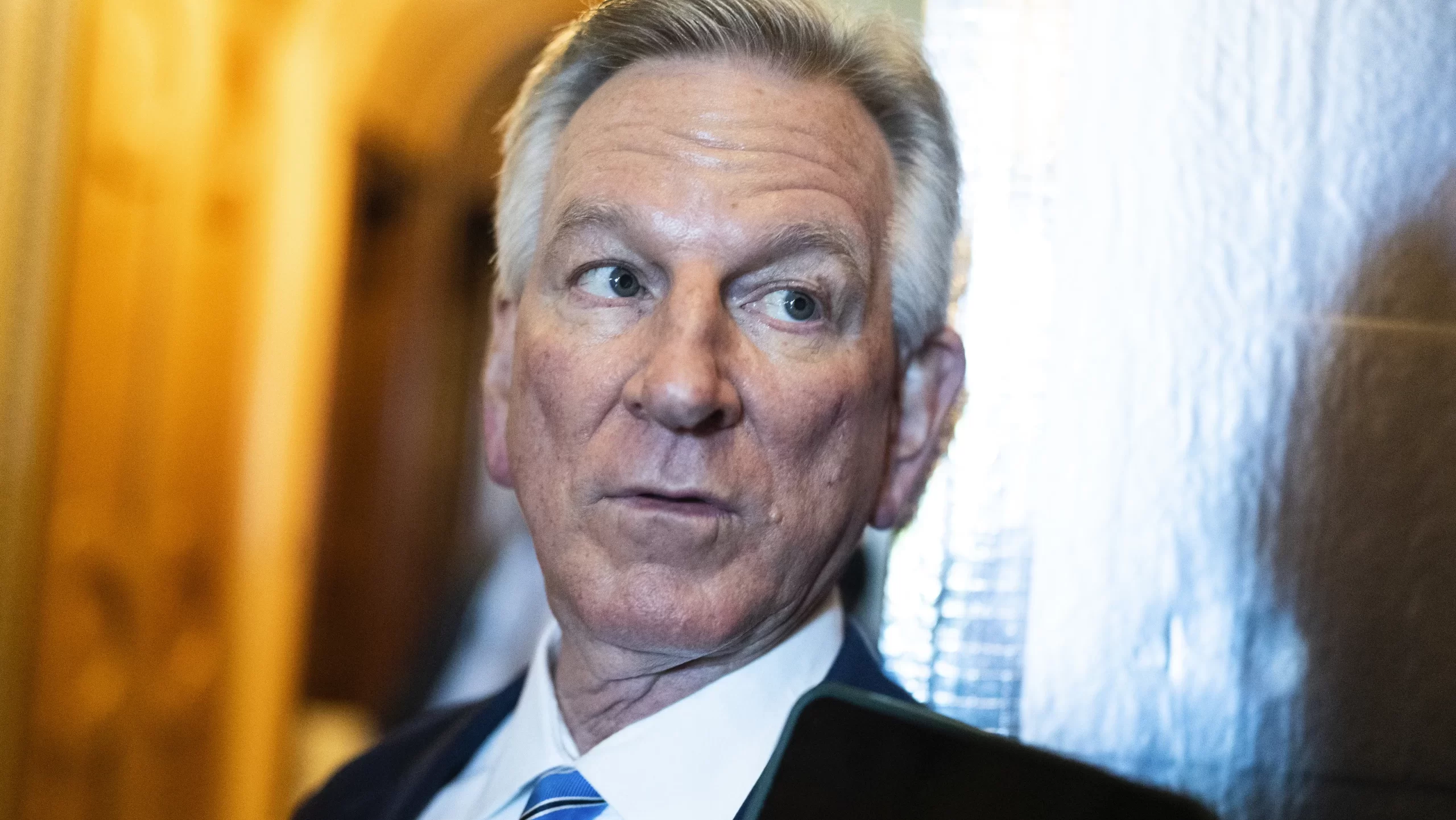
U.S. Senator Tommy Tuberville’s campaign is facing scrutiny following a statement published on Yellowhammer News that reveals a misunderstanding — or misrepresentation — of Alabama’s strict campaign finance regulations. Tuberville’s campaign asserted, “to clarify under Alabama FCPA law, campaign committees are allowed to transfer money from one principal campaign committee if they are the same person,” implying he could shift his substantial federal campaign war chest of $628,327.28, as reported in the first quarter of this year, into a potential state-level campaign.
However, this claim directly contradicts Alabama’s explicit restrictions under the state’s Fair Campaign Practices Act (FCPA). According to Alabama law, transferring more than $1,000 from a federal campaign account into a state campaign committee constitutes a felony — a stark reality Tuberville’s campaign either fails to comprehend or is intentionally ignoring.
A Clear and Strict Limit
Under Alabama Code § 17-5-15.1(a), state law explicitly caps transfers of funds from a federal campaign committee into a state-level campaign account at just $1,000. Any amount beyond that limit is strictly prohibited, with violations considered a Class C felony. This provision, enacted in 2010 as part of a comprehensive ethics reform package, is intended to ensure that all candidates running for state office in Alabama raise campaign funds under state regulations, rather than importing federally raised money subject to different, often less restrictive, contribution guidelines.
Tuberville’s campaign statement, therefore, misrepresents Alabama’s clearly stated legal boundaries, suggesting a troubling lack of understanding of the laws governing elections in the state where Tuberville may seek future office. While the campaign’s clarification suggests that transferring substantial sums from a federal to a state campaign account is permissible if the committees belong to the same candidate, Alabama law categorically disputes that interpretation.
Historical Context and Legal Interpretations
Alabama’s Ethics Commission has repeatedly emphasized that federal campaign funds are subject to state jurisdiction once transferred into state races. An advisory opinion issued by the commission makes clear that federal campaign money remains exempt from state restrictions only as long as it is used strictly within federal election campaigns. The moment such money enters Alabama’s state-level political landscape, it becomes subject to stringent state finance rules, notably the state’s comprehensive PAC-to-PAC transfer prohibition.
Specifically, the Ethics Commission opinion stated: “Money donated for use in federal campaigning is beyond Alabama’s jurisdiction only so long as it remains strictly federal. Any federal campaign funds utilized for state-level political activity may not exceed $1,000.” Alabama has consistently upheld this interpretation, ensuring that federal officeholders cannot funnel large sums of federally raised funds into Alabama state campaigns.
Practical Implications and Enforcement
Practically, this stringent rule forces candidates who currently hold or previously ran for federal office to start fresh in raising state-level campaign funds. Alabama’s campaign finance compliance materials, routinely distributed to candidates and committees, explicitly warn against precisely the kind of fund transfer implied by Tuberville’s campaign. Any breach exceeding the modest $1,000 threshold could trigger criminal charges, making compliance critically important.
State authorities typically advise federal candidates considering state office either to refund leftover federal funds, donate them to charity, or contribute them to political party committees, all options permitted by federal campaign law.
Federal vs. State Distinctions
Notably, federal campaign finance laws governed by the Federal Election Commission (FEC) do permit federal candidates to use leftover federal funds for state campaigns — but critically, the FEC defers entirely to state laws. Thus, while federally, transferring funds might appear permissible, it remains strictly subject to Alabama’s stringent limitations, effectively blocking any significant federal-to-state campaign fund transfer.
Conversely, the federal guidelines are even more stringent in reverse scenarios, prohibiting any direct transfer of state-level campaign funds into federal campaigns, underscoring the necessity of separating fundraising regulations clearly delineated between state and federal elections.
A Misstatement or a Misunderstanding?
Given these well-established rules, Tuberville’s campaign’s public statement raises important questions: Is Tuberville simply unaware of the detailed financial regulations governing political campaigns in Alabama, or is his campaign intentionally muddying the waters to facilitate future strategic maneuvers?
The significance of either scenario cannot be overstated. Misunderstanding state law at this level, particularly by an active U.S. senator who may soon pursue the governor’s office, reflects either a worrying lack of diligence or a potential willingness to mislead the public and donors about critical legal boundaries.
Alabama’s Stance: Strict and Unambiguous
Alabama’s restrictions on federal-to-state transfers are among the strictest nationwide. While other states may allow significant movement of campaign funds across federal and state boundaries, Alabama deliberately constructed a firewall. The state’s intent is clear: candidates must abide strictly by the campaign finance laws relevant to the jurisdiction in which they seek office.
In the end, Tuberville’s campaign’s incorrect assertion of Alabama’s laws doesn’t merely represent a minor slip; it signals either serious negligence or a potentially troubling disregard for campaign finance integrity. Given that a violation constitutes a Class C felony, understanding — and clearly communicating — the law correctly is not just advisable, but mandatory.
With Tuberville eyeing Alabama’s gubernatorial mansion and potentially considering a run for governor in 2026, this misstep could have far-reaching consequences, both legally and politically, adding complexity to an already contentious potential race.
